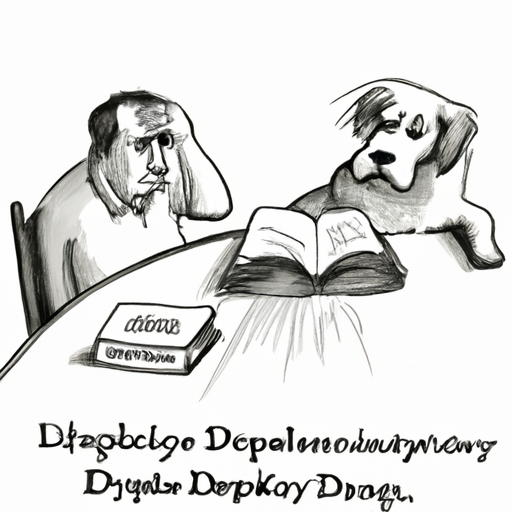Understanding Idiopathic Epilepsy
First, let’s break down what ‘idiopathic epilepsy’ means. ‘Idiopathic’ is a term used in the medical field to denote a disease or disorder having no known cause. ‘Epilepsy’ is a neurological disorder that causes sudden, uncontrolled electrical disturbances in the brain. These disturbances result in seizures, which can affect behavior and consciousness. When your dog is diagnosed with idiopathic epilepsy, it means your furry friend experiences seizures but the root cause remains unknown.
Recognizing the Signs
As a caregiver, you might be wondering, “What signs should I look out for?” Here is a list to help you identify potential seizures:
- Sudden bouts of staring
- Muscle twitching
- Collapsing
- Loss of consciousness
- Frothing at the mouth
- Uncontrolled urination or defecation
Remember, these signs can vary in severity and frequency. Some dogs may experience these symptoms only occasionally, while others may have multiple episodes in a short timeframe.
Potential Treatment Options
Despite the unknown root cause, idiopathic epilepsy in dogs is not a death sentence. There are several potential treatment options available to help manage your dog’s symptoms. These include:
- Medication: Anticonvulsants are the most common form of treatment.
- Dietary changes: Some research suggests that a ketogenic diet may help control seizures.
- Acupuncture and Herbal Medicine: These alternative therapies have shown promise in some cases.
The right treatment for your pet will depend on factors like their overall health, the severity of their symptoms, and their response to treatment.
Managing a Dog with Idiopathic Epilepsy
| Tips | Description |
|---|---|
| Regular Vet Check-ups | Regular vet visits are crucial for monitoring your dog’s health and adjusting treatment as needed. |
| Avoid Triggers | Certain triggers like stress or lack of sleep can exacerbate seizures. Try to create a calm, stable environment for your dog. |
| Education | The more you know about idiopathic epilepsy, the better equipped you’ll be to care for your dog. |
The Impact on Quality of Life
Although it can be distressing to see your pet experience a seizure, remember that dogs with idiopathic epilepsy can still lead happy, fulfilling lives. Yes, they require extra care and attention, but they can still play, enjoy walks, and give you all the love and affection you’re used to.
Frequently Asked Questions
Q: Can idiopathic epilepsy be cured?
A: Currently, there is no known cure for idiopathic epilepsy. However, with the right treatment and care, seizures can be managed effectively.
Q: Can my dog die from a seizure?
A: While severe and prolonged seizures can be life-threatening, most seizures are not. Regular vet check-ups and immediate care during a seizure can help ensure your pet’s safety.
Q: Is idiopathic epilepsy common in dogs?
A: Yes, it’s one of the most common neurological disorders in dogs.
Q: Can a dog with idiopathic epilepsy live a normal life?
A: Absolutely. While they may need some extra care and attention, dogs with idiopathic epilepsy can live a normal, happy life.



